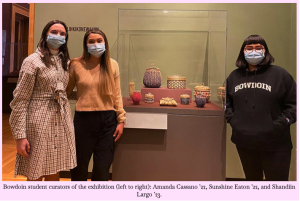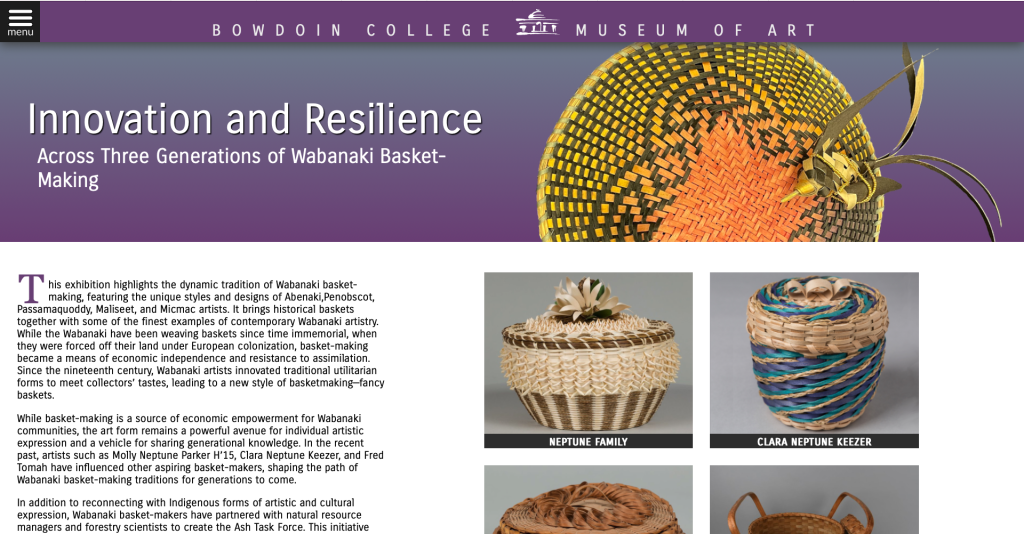Curated by Amanda Cassano ’22, Sunshine Eaton ’22, and Shandiin Largo ’23, members of the Native American Students Association at Bowdoin College.
(February 1, 2022 – September 18, 2022, Markell Gallery)
The exhibition seeks to highlight the dynamic tradition of Wabanaki basket-making, reflecting Abenaki, Penobscot, Passamaquoddy, Maliseet, and Micmac artists’ unique styles and designs. The exhibition brings together historical and contemporary baskets, which represent some of the finest examples of Wabanaki artistry in recent times. While the Wabanaki have been weaving baskets since time immemorial, when Wabanaki were forced off their land under European colonization, basketmaking became a means of economic independence and resistance to assimilation. In the nineteenth and twentieth centuries, Wabanaki artists innovated traditional utilitarian forms to meet tourists’ tastes, leading to a new and vibrant style of basketmaking—fancy baskets.
While basket-making continues to be a source of economic empowerment for Wabanaki communities, basket-making remains a powerful form of individual artistic expression and vehicle for sharing generational knowledge. Over the past few generations, artists such as Molly Neptune Parker, Clara Neptune Keezer, and Fred Tomah have significantly influenced young generations of basket-makers, shaping the path of Wabanaki basket-making traditions for generations to come.
In addition to reconnecting with Indigenous forms of artistic and cultural expression, Wabanaki basket makers have partnered with natural resource managers and forestry scientists to create the Ash Task Force. In this way, community members and scholars are working to de-colonize Western academies and systems that have ignored the value of Indigenous knowledge and culture. The Ash Task Force works to combat an invasive beetle called the Emerald Ash-borer, which threatens the future of Wabanaki baskets’ primary material, brown ash. In protecting and promoting Indigenous artistry and culture, the process of de-colonizing Western and Eurocentric systems of knowledge has begun.
Explore the online version of the exhibition here:
https://www.bowdoin.edu/art-museum/exhibitions/digital/innovation-resilience/index.html

